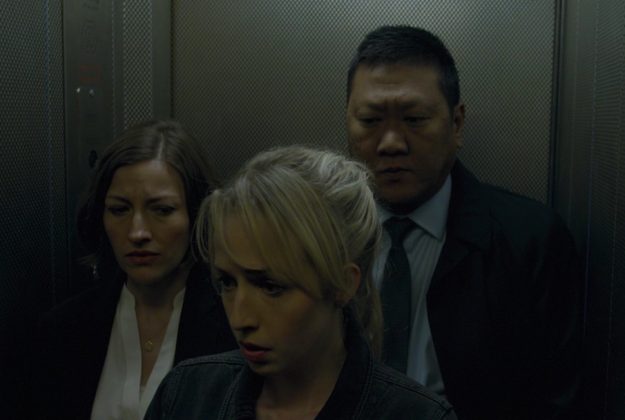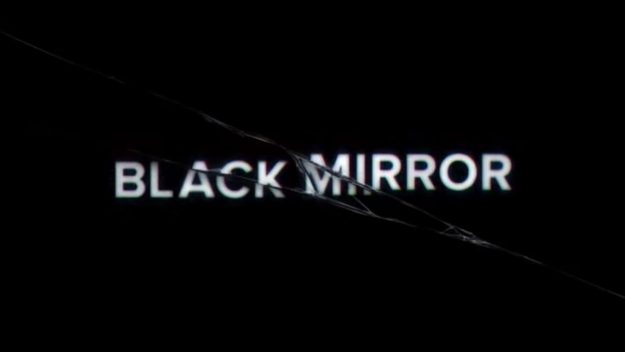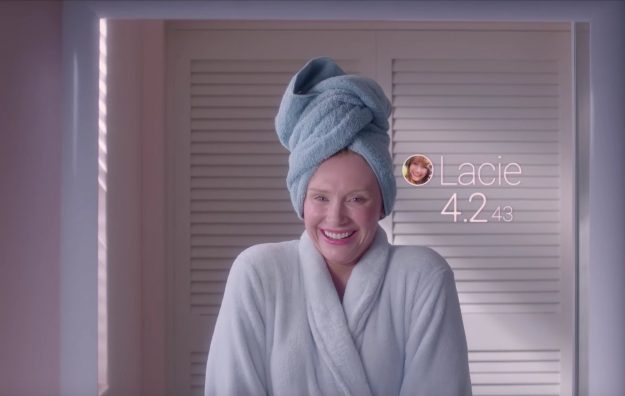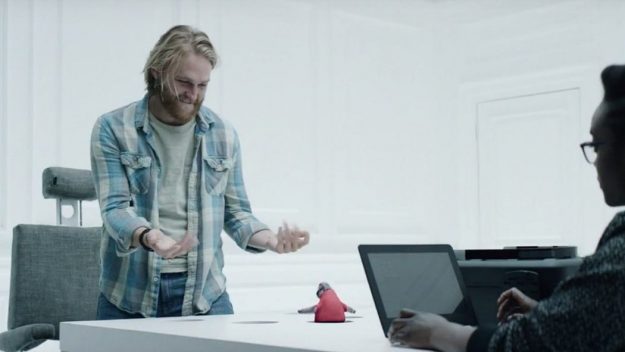WARNING: The following contains spoilers for Season 3 of Black Mirror.
When we think of technology, our society tends to look at it with a mixture of optimism and suspicion. We marvel at the advances that have done everything from curing diseases to creating more realistic games, but we also cringe at the thought of losing jobs to automation. As our world changes around us, we must as ourselves one question: What if certain technological anxieties were taken to their logical conclusion? That is the premise behind Netflix’s Black Mirror, a production by Charlie Brooker that stands in an elite echelon of television alongside The Twilight Zone and The Outer Limits.
Let’s see why, shall we?
The Performances Are Almost Uniformly Fantastic.
Since the production of Black Mirror moved from Channel 4 to Netflix, the show has attracted a wider array of A-list talent than in seasons past. While the show may be an anthology of one-and-done stories, most of the cast imbues their particular episode with a sense of atmosphere that has rarely been seen on television. With that said, there are a few big stand-outs that must be commented on before we go any further.
Bryce Dallas Howard and Cherry Jones are arguably the most well-known of the bunch. In the opening episode, “Nosedive”, they each have a unique role that demonstrates how that particular world operates. To be particular about it, Howard’s Lacie Pound and Jones’ Susan are memorable because they demonstrate a sense of opposites. Lacie is a young, naive, and fallible human being that I ended up feeling sorry for. On the opposite side of the spectrum, Susan gives the story a sense of weight and wisdom because she sees through the world around her.
While lesser known, Gugu Mbatha-Raw and Mackenzie Davis deliver a knockout performance in “San Junipero.” Their performances as Kelly and Yorkie are filled with quite a bit of emotion as this seemingly odd reality gives way to an interesting twist. They may be the ones that generate all the buzz for this show at awards season, but we’ll follow up on that later.
The rest of the performances weren’t bad at all. Some of them may not have been particularly memorable, but I think that has something to do with the writing rather than the individual performances. Keep on the lookout for Jerome Flynn, Faye Marsay, and Michael Kelly, though!
The Stories Are Quite Meaty.
While Black Mirror has a history of interesting premises, Netflix gave the creative team a chance to up the ante with stories that could easily happen now, five minutes from now, or at some point in the near future. Charlie Brooker and his writing team show beyond a shadow of a doubt that they understand internet culture, giving the show a sense of resonance and silliness even in such dark stories.
I’ve already mentioned that “Nosedive” and “San Junipero” are two standouts because of the actors and actresses, but they are also impeccably written. In many ways, “Nosedive” body slams the culture of political correctness and the social media app, Peeple. One of the reasons why I found Bryce Dallas Howard’s performance to be so compelling is because the mere existence of the app turns her from a kind person into a fake asshole. She tries so hard to be accepted, ignores the people that already like her, and can’t seem to realize the truth until Susan rocks her world. Kudos to Rashida Jones and Michael Schur for writing such a good story!
On a more uplifting note, “San Junipero” seems to be a love letter to pop culture just as much as it is an interesting romantic story. Some might accuse it of being politically correct for featuring lesbians, but I honestly didn’t mind it. As I’ve said before, execution is nine-tenths of the law in stories, and Brooker delivers in spades with an intriguing theme. Would you take a chance on faith or would you go for the sure bet through technology? It’s a question that everyone has to grapple with at some point, but anyway, moving on.
The Flaws Are Noticeable, But Not Horrible.
The unfortunate thing about writing is that it can be hard to choreograph a twist without giving it away to the viewer. Unfortunately, this is noticeable in “Shut Up and Dance” and “Men Against Fire.” I’m not going to give away what happens, but there are certain scenes in the opening of each episode that gave me the chance to correctly predict the twist at the end. And when a series is structured around said reveals, it can be a big problem when a mere twelve episodes are in the bag thus far.
However, that is not to say that those two episodes are totally useless. Even though I was able to figure them out, their reveals may catch you off guard. In addition, they are both of a high enough quality that you can still get some entertainment value out of them. In particular, I liked “Men Against Fire” because it has all of the elements of a dark and disturbing future, but also satirizes how veterans are treated in a depressing way.
Conclusion.

“Hated In The Nation” condemns SJWs and other perpetrators of social media harassment. I can dig it!
While no television show is perfect, Black Mirror stands tall among the greats of science fiction. With intriguing performances and excellent writing, the various worlds that Charlie Brooker has created are not to be missed. If you have a Netflix account, you owe it to yourself to give this series a shot.
My only hope for Season 4 is that it gets a bit more comedic. If Charlie can pull off a satire of something like Pepe the Frog, that would be amazing.
What would you like to see? Let us know in the comments!




No Comments Yet